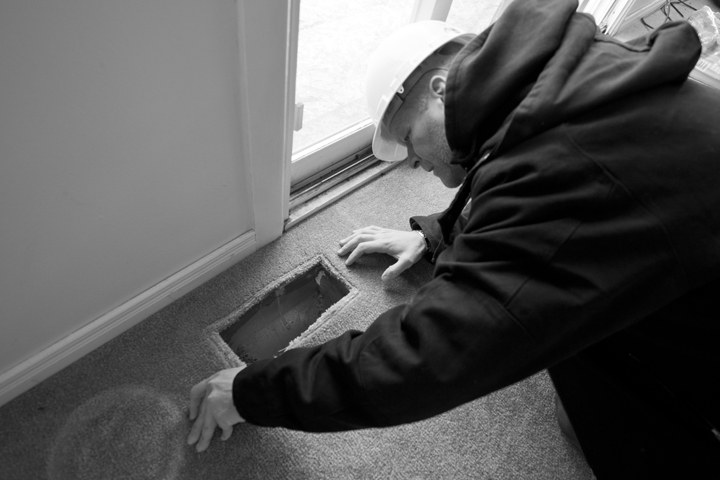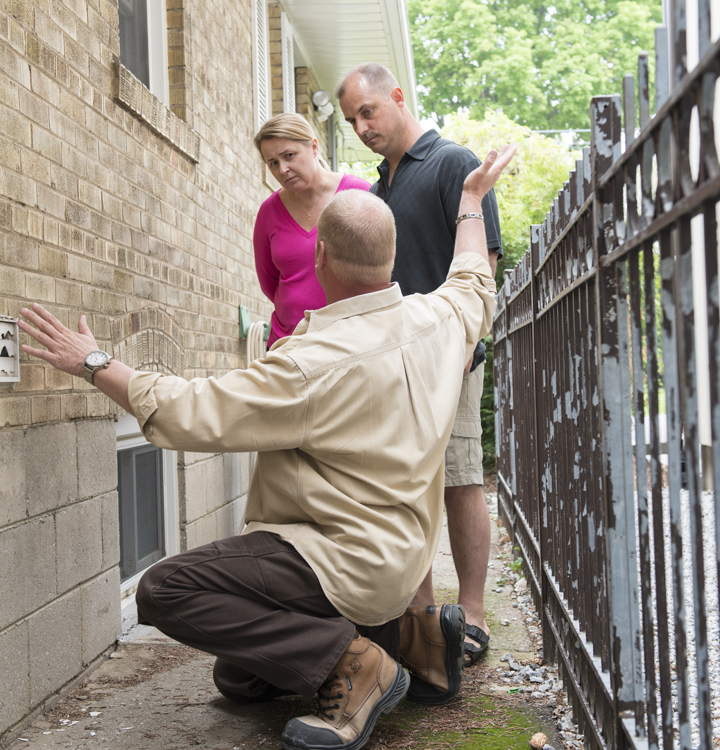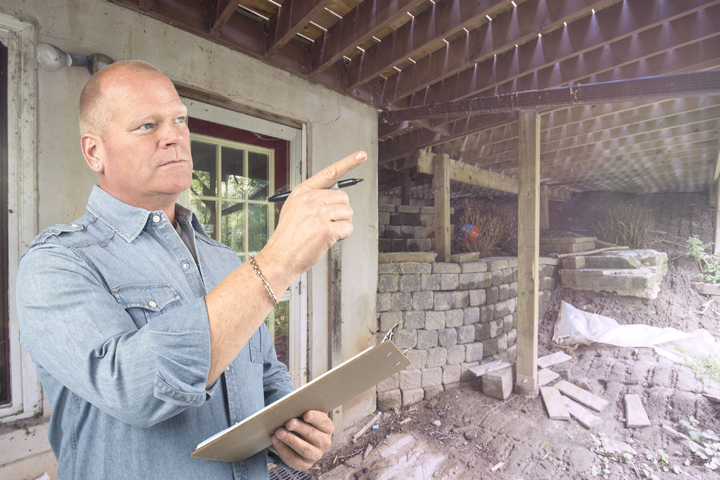
Mike Holmes is one of HGTV Canada’s go-to contractors and the host of Holmes and Holmes and Holmes: Buy it Right.
Buying a home is one of the biggest investments you’ll ever make, so make sure you do it right! As a first-time home buyer, you’ll want to do your homework to protect that investment. Whether you’re buying new or used, these tips will help ensure you’re making a smart investment.
1. Hire a Qualified Home Inspector: My number one rule when buying a house is to get a home inspection by a professional. A seller’s market has a tendency to push buyers beyond their financial capacity, letting fear drive the purchasing decision – but if a home isn’t inspected properly, it could cost a fortune to repair in the end. If the name of the game is saving money, not getting a home inspection doesn’t make any sense.
2. Ask the Right Questions: It’s buyer beware, so do your research and ask the right questions when hiring an inspector. How long have they been inspecting homes? What did they do before becoming a home inspector? Are they insured? Are they certified? A good home inspector will help you look beyond the surface. I love home inspectors that are Level 1 Certified Thermographers. They can use thermal cameras to detect problems behind the walls, like leakage and abnormal heating from faulty wiring.

3. Get Quotes Before Offer Night: Budget for renovations or repair costs when you negotiate the deal. If your home inspection report indicates potential issues with the house, talk to professionals (whether a contractor, plumber or electrician) who can give you an idea of how much it will cost to fix those problems before you make an offer. I’d rather spend money on issues I knew about than on those I wasn’t aware of. And if you’re thinking about doing the renovations yourself… unless you’re a pro, don’t do it! You could end up causing more problems, like compromising the structure of your home or doing faulty electrical work. Hire professionals to get the job done right the first time.
4. Think Beyond the Inspection: On top of your regular inspection, I always recommend having your home tested for environmental contamination. This includes testing for indoor air quality, mould, asbestos and radon. Breathing in these things over a long period of time can cause serious health issues.
5. Anticipate Future Costs: Do your research on what it takes to maintain a home. Even if you got a home inspection done, it can’t uncover every potential issue. For example, there is no way to predict that your furnace will fail next year. That’s another potential cost. You’ve made your smart investment, now do the work and protect it!

6. Be Observant: As a first-time buyer, know what to look for when viewing an older home. Walk through it with eyes wide open. Check for things like insects (which could mean issues with termites) and mouse droppings. Look out for patch jobs on the walls – a clear sign of a DIY repair job. Most basements also have higher humidity levels. Is there a musty or damp smell? This could mean there is mould present. It’s a good idea to do your due diligence if there is a dehumidifier running in the basement when you walk through the home, which potentially indicates the presence of mould.
7. Examine the Exterior: I’ve often seen first-time buyers make impulsive decisions and fall in love with the fancy finishes inside the house – crown-moulding, a renovated kitchen and fancy bathrooms. But take a close look at the exterior of the house. Are there wide cracks in the foundation? If you can fit a dime in a foundation crack, it’s time to call in a structural engineer. Are there missing downspouts or downspouts that direct water to the roof or foundation? Is there poor grading? Are there missing shingles on the roof, or shingle edges that are curled? All of these issues could lead to costly leaks.
8. Consider the Home’s Track Record: Buying an older home? Make sure your real estate agent gives you the right information to make a sound decision. Finding out the age of the house will give you an idea of what to expect. Your agent will be able to provide you with a sales history. Lots of sales activity might be a sign that there are problems with the house.

9. Research the Builder: Many first-time buyers don’t think about researching the builder when buying a new build. Talk to people who have bought from the same builder. Have they run into any problems with their home? What has the builder done to solve them? Does the builder offer an inspections program? Check to see if the builder will allow you to visit the home as construction moves forward. Builders who stand-by their work will appreciate that you want to be involved.
10. Check the Reno History: If considering an older home, look into its renovation history and ask for permits. No renovation permits mean a professional wasn’t hired for the job, or they did the work themselves. This could result in major headaches and costly repair bills down the road. Know when to walk away. As I always say, plan it right, do it right, buy it right, and you’ll be alright!
Images courtesy of The Holmes Group
HGTV your inbox.
By clicking "SIGN UP” you agree to receive emails from HGTV and accept Corus' Terms of Use and Corus' Privacy Policy.



